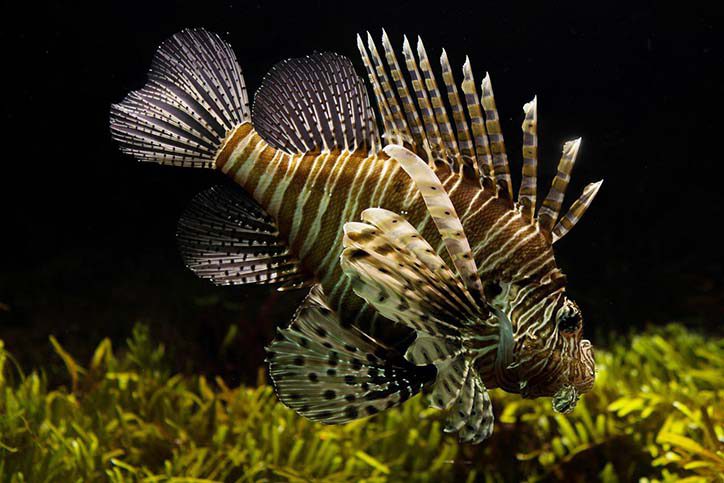Going fishing and/or eating fish is a common activity. But did you know that certain fish can cause poisonings in humans? Today we will learn about three illnesses caused by eating fish, as well as four types of fish that have venom that can be released if they pierce someone.
Scombroid
Scombroid fish poisoning is a reaction that happens after eating fish that contain high amounts of histadine. When the caught fish is not stored at a cold enough temperature, the natural histadine becomes histamine. When we eat the fish, the histamine causes symptoms that include:
- flushing of the skin (sudden redness)
- headache
- dizziness
- sweating
- itching
- hives
- rash
- stomach upset
- nausea
In more severe cases, people can experience trouble breathing and low blood pressure. It can take minutes to hours after eating the fish for the symptoms to occur. Treatment involves over-the-counter antihistamines and possible steroids from your health care provider.
Ciguatera
Ciguatera fish poisoning is a foodborne illness that happens after eating fish that contain toxins from algae blooms. The most common species involved include grouper, parrot fish, snapper, surgeon fish, barracuda, amberjack kingfish, and dolphin fish (mahi mahi). Cases usually start with nausea and vomiting that can progress to neurological symptoms such as tingling fingers and toes. You may also find that cold things feel hot and hot things feel cold. In more severe cases, people can experience trouble breathing and low blood pressure. There is no specific treatment for ciguatera toxicity, but more severe cases may require treatment at a hospital.
Mercury
We often hear news stories about the dangers of mercury in fish. Many fish and shellfish species do contain small amounts of mercury because it is in the water they live in. Studies have shown that in normal portions, the health benefits of fish are greater than the danger of the small amounts of mercury. Some groups, such as pregnant women and young children, are regularly advised to limit their fish intake. The Food and Drug Administration (FDA) provides advice about eating fish.
Lionfish and Stonefish
Lionfish and stonefish are popular in home aquariums. The spines located on their dorsal fins contain venom glands. When handled or threatened, the fish can pierce its victim with these spines and release their venom. The most common symptom is pain in the area that was pierced, approximately 60-90 minutes after the sting. Other symptoms include swelling, tingling sensation, and tenderness in the area. In more severe cases, symptoms include low blood pressure and effects on the heart. The venom can be killed by heat, therefore treatment typically includes placing the affected area in water as hot as the person can tolerate. It takes about 90 minutes for the symptoms to stop. Afterwards, it is important to take care of the affected area by keeping it clean and dry and watching for signs of infection.
Stingray
Stingrays have a barbed spine located at the end of the tail that includes a venom gland. Symptoms include pain, redness, swelling, and tenderness in the area that was pierced. More severe symptoms can include nausea, vomiting, and effects on the heart. Treatment includes placing the affected area in water as hot as the person can tolerate. Symptoms usually take an hour to appear but can continue for 48 hours. Afterwards, it is important to take care of the affected area by keeping it clean and dry and watching for signs of infection. Sometimes an x-ray is needed to look for any of the remaining barb material left in the skin.
Catfish
Catfish have spines located in the dorsal or pectoral fines that include a venom gland. Symptoms include pain, redness, swelling, and tenderness in the area that was pierced. The area is very prone to infection, so good wound care (keeping it clean and dry) is very important. Treatment includes placing the affected area in water as hot as the person can tolerate.
If you or someone you know is experiencing fish poisoning or have been stung by a fish, call the Maryland Poison Center at 1-800-222-1222. Our pharmacists and nurses with specialized training in managing poison exposures are available 24/7.
Mike Joines, BSPharm
Certified Specialist in Poison Information





Leave a Reply